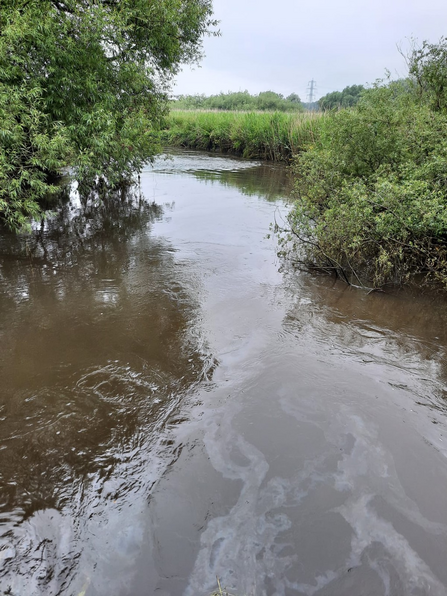Wildlife is suffering as a result of this issue with wildfowl covered in fuel oil and the death of a cygnet and fish linked to the pollution. Further impacts on aquatic life and migratory fish are inevitable in one of the country's most significant chalk rivers.
Lower Test Nature Reserve is an incredibly special reserve, home to a diverse array of species, including rare birds such as osprey and marsh harriers. As a result of its value for wildlife, it is designated as a Ramsar site, a Site of Importance for Nature Conservation (SINC), a Site of Special Scientific Interest (SSSI), a Special Area of Conservation (SAC) and a Special Protection Area (SPA).
We believe that the fuel pollution has reached our nature reserve due to historic and ongoing inputs from the industrial estate on adjoining land which, due to heavy rains, has caused an oil interceptor to flood diesel into our reserve. The diesel pollution on our reserve is creating long-lasting damage to the protected habitats as well as directly impacting a wide range of species and important habitats.
Over the past few months we have repeatedly contacted the relevant authorities, including the Environment Agency and Southern Water, asking them to identify the source and to clean up the diesel pollution a priority.
This week The Trust’s Director of Estates and Conservation Delivery, John Durnell, was interviewed by ITV Meridian to highlight the damage the fuel oil is having on the River Test, and the devastating impacts that could continue for years to come.
Southern Water’s Emergency Team have now been to site to replace the booms and install a more robust system around the interceptor outfall to try and control the fuel oil. Hampshire & Isle of Wight Wildlife Trust’s CEO, Debbie Tann, has written to the CEO of Southern Water and the Area Director for the Environment Agency. They have both since been in touch to discuss next steps and a meeting will be arranged as soon as possible to look at putting in place a long-term solution to ensure this problem does not arise in future. While we are pleased that some action has been taken by Southern Water to replace the existing booms, and the authorities have now been in touch, we are still pushing for a stronger response from all parties involved to guarantee a long-term solution so that this incident does not continue to be repeated and to prevent further damage.
We are calling for the relevant authorities to work together to identify the source of the pollution and take appropriate action against the polluter which may include fines or prosecution. We are also calling for proper measures to stop further oil leaking onto the nature reserve, and demanding that compensation is provided to the Trust to repair the environmental damage to our nature reserve and safeguard this irreplaceable habitat and its wildlife.

